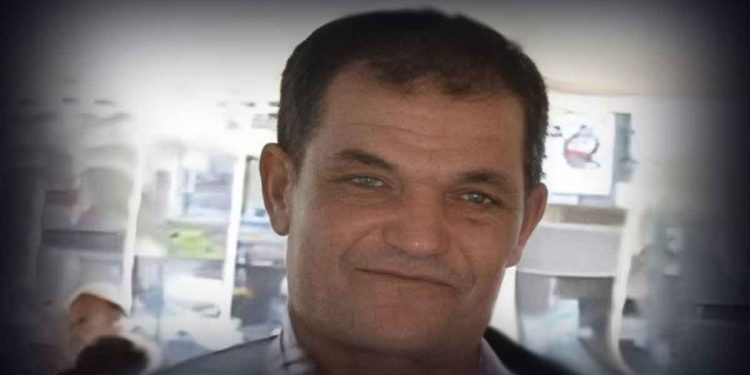In a tragic incident that reflects the severe deterioration of human rights conditions in Egyptian prisons and detention centres, Egyptian detainee Farid Mohamed Abdel Latif Shalabi, known as “Sheikh Farid Hamda Shalabi”, has died inside a detention facility operated by the Central Security Forces in Kafr El-Sheikh governorate. His death came weeks after his arrest under mysterious circumstances and subsequent enforced disappearance.
Sheikh Farid, a resident of Ezbet Al-Aghraba in Kafr El-Sheikh, was arrested on 7 July without a judicial warrant or arrest order. He then completely disappeared, with no information available about his whereabouts or condition until the security services abruptly informed his family of his death via a brief phone call. No medical report or official explanation regarding the circumstances of his death was provided.
His body was handed over late at night under tight security. The burial was heavily monitored, with five police vehicles present, and strict measures imposed on the funeral. Family members were threatened not to speak publicly about the incident or share any details, in what appears to be a deliberate attempt to conceal the crime and erase any trace of the truth.
Eyewitnesses from the local community stated that Sheikh Farid was known for his political opposition and had been on the run for years before his recent arrest. This raises strong suspicions that he was targeted due to his political views, as part of a broader pattern of eliminating political opponents and dissenters within Egyptian prisons.
According to available information, following his arrest, Sheikh Farid was subjected to enforced disappearance, he was not presented before any judicial authority, and the location of his detention remained undisclosed. This constitutes a flagrant violation of the most basic guarantees of a fair trial and points to a systematic policy by security agencies to break the will of detainees and subject them to extrajudicial treatment.
His death under torture highlights the ongoing use of torture as a systematic tool rather than isolated abuses. It also underscores the continued use of off-the-record security facilities, which operate without judicial oversight, as secret detention and interrogation centres, where detainees are held in inhumane conditions, without legal protection or contact with the outside world.
Moreover, the ban on holding a public funeral and the imposition of severe restrictions on the burial ceremony violate the dignity of the deceased and his family. These measures appear aimed at preventing the incident from turning into a public issue or a symbol of the broader abuses faced by political prisoners in Egypt. What took place seems to be a calculated attempt to erase the evidence of a crime before it can gain national or international attention.
Egyptian security authorities, particularly the National Security Agency, continue to wield near-absolute powers beyond judicial oversight. This occurs within a repressive political environment where freedoms are severely restricted, independent media is silenced, and civil society organisations are shut down.
The death of Sheikh Farid Shalabi brings renewed attention to the dire state of Egyptian prisons, which due to systematic torture, medical neglect, and the denial of basic rights have become fertile ground for grave violations of human dignity. Without genuine accountability and an immediate end to such practices, more victims will continue to perish in silence behind walls where neither justice nor light can reach.


























